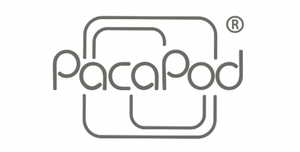
Blossom Antenatal - Pregnancy during a pandemic
PREGNANCY DURING A PANDEMIC
PacaPod would like to introduce Blossom Antenatal - Blossom was born back in March 2020 when our founder, Clare, realised that the overwhelmed NHS couldn’t offer women the antenatal care that they needed. Since then, Blossom has supported over 10,000 women online. Along with essential and extensive education, we offer loving support to people in all sorts of difficult situations. If you need support during these uncertain times, we are here for you! With thirty different classes on offer, there is something for everyone. Even though it might not feel like it, support is out there. You are not alone.
INCREASED ANXIETY
Women are incredible. Courageous, strong, and filled with innate strength and wisdom, they can cope with almost anything. But over the last year, women all over the world have had to negotiate their way through the arduous task of growing a baby whilst also coping with the strain of lockdowns, financial insecurity, loneliness and isolation. Full of unknowns, pregnancy is an anxious time anyway - but this pandemic has intensified anxiety enormously. The style of antenatal care has altered dramatically for many, and special milestones have been tinged with sadness as women attend scans and hospital appointments alone.
UNEXPECTED ISOLATION
At a time when many women would naturally surround themselves with the practical and emotional support of mothers, aunties, sisters and friends, most have been unable to. Many women have found themselves sharing their happy news, their growing bump - and their new babies - from behind a screen. The virus itself has led to a lot of apprehension, anxiety and fear - and the consequences of this have led to many dashed hopes. While many women are hugely grateful for their good health in the midst of all this, their gratitude is mixed with the distinct and stinging disappointment and sadness that has surrounded what should be one of the happiest times in a woman’s life.
Humans are pack animals. We’re not meant to live alone. We need interaction, conversation, and tender physical touch. Pregnant women especially need to be cared for, reassured, comforted and held. In fact, without physical contact, it’s hard for the body to produce oxytocin, ‘the love hormone’, which plays a vital role throughout labour and breastfeeding.
INCREASED VULNERABILITY
Many single mothers have been quite literally alone when quarantining, which has been hugely challenging, draining and lonely for them. Motherless women have found their grief resurfacing as they face new motherhood inside a global crisis - without their own mother to guide and support them. Black women, increasingly aware that they are five times more likely to die in childbirth than white women, enter the maternity system with an ever-growing apprehension of what may happen to them.
BIRTHING ALONE
Hospital tours, aimed at making women feel more familiar with their birth environment of choice, have been cancelled. Home births have been called off, and in some cases water births have been banned too, leaving women feeling very out of control. Many women have had to prepare to give birth without their partner present. Unsurprisingly, women have dug deep and managed absolutely brilliantly, often staying at home for as long as possible so as to share most of the experience with their partners in a familiar and comfortable setting. But it hasn’t been easy. Horrifyingly, the number of stillborn babies has doubled since the pandemic began. Devastatingly, this isn’t because of the virus itself, but because women are reluctant to go into hospital; evident in the fact that hospitals across the UK have noticed a significant drop in the number of women calling with concerns.
MUMMY MATES
Motherhood is a group task. No infant is born expecting to be raised by one or two individuals; we are tribal creatures and have raised our young in large groups for thousands of years. It is only in modern times that we have broken off into nuclear families - where the daily guidance and practical support of our tribes is no longer available. The modern world insists that we take on the enormous intergenerational responsibility of parenthood, all on our own. Parenting isn’t hard because we’re bad at it; it’s hard because we don’t have our tribes anymore. We are an adaptable species however, and so when communities can come together and build up support networks, new parents manage brilliantly. But this pandemic has robbed families of this vital social contact, and so it has been especially hard for the newest families of all, who need the support of their communities more than ever.
SILVER LININGS
Despite all that has been thrown at them, women everywhere have found and harnessed the strength inside of themselves to not only cope, but to look on the brighter side of these dark times. There have been some magical upsides to the enforced hibernation; many pregnant women have told us that they’ve loved the relaxation of working from home. Lots of brand-new parents have found that hiding away from the world was just what they needed when getting to know their new babies. And breastfeeding, a learned skill which like any other requires an enormous amount of time and concentration, has been easier for some thanks to the unexpected peace and quiet and much slower pace of life.
www.blossomantenatal.com
Antonia @the.harmless.kitchen







